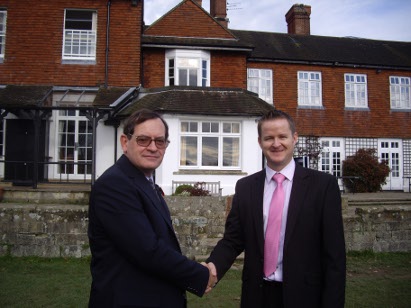Cumnor House School
Originally a proprietorial boarding preparatory school for boys founded in Croydon, Cumnor House School moved to its present site in Danehill, Sussex in 1948 and became an educational trust in 1988, administered by a governing body. The savings so far have totalled over £11,000, representing a 19% saving.


£15.9k
ElectricityOriginally a proprietorial boarding preparatory school for boys founded in Croydon, Cumnor House School moved to its present site in Danehill, Sussex in 1948 and became an educational trust in 1988, administered by a governing body.
Now a co-educational school, it offers an education to boarders and day pupils aged from four to thirteen. Boarding is an option which most pupils choose in their final one to two years at the school. Set in 52 acres of mature woodland with wide open spaces in an Area of Outstanding Natural Beauty, the school offers a wide range of modern facilities to meet the needs and aspirations of its pupils. Greatly expanded sports pitches are in close proximity to a sports hall with a 25-metre indoor swimming pool, two art rooms, a design and technology (DT) centre and the recently completed 380-seat theatre.
Cumnor House School’s Bursar, Mark Dickens first met Steve Garnett and Eric Tiv of Utilitas in 2007 at the ISBA National Conference, however it wasn’t until they met again in 2009 that Mark engaged the services of Utilitas. At the first meeting energy bills were collected covering Oil and Electricity (there is no mains gas supply to the site). The expenditure on Oil, although quite significant was not enough to look at a full market tender. Electricity was the first area to be analysed and as Cumnor House had a few sites not in a contract, savings were found immediately. Further savings were gained as and when the contracts on the other meters ended. The savings so far have totalled nearly £16,000, representing an 18% saving.
After the analysis and tendering of electricity, Utilitas thought a further investigation of the use of buildings was due as a rebate and an ongoing reduction in charges could be realised. After breaking down usage by meter and an understanding of each building's use, Utilitas was able to demonstrate that in fact Cumnor House was indeed paying too much. After the numbers were analysed the findings were put to HMRC and a tax reduction of 46% was achieved, this saving was retrospective and Utilitas was able to go back 12 months, achieving a rebate of £700 and ongoing savings of the same amount every year.
Finally a revisit is now due on the topic of waste. Originally the waste charges made by the local council were very keen, however a change in legislation means it may be possible to not only gain an ongoing saving but also a retrospective rebate.

